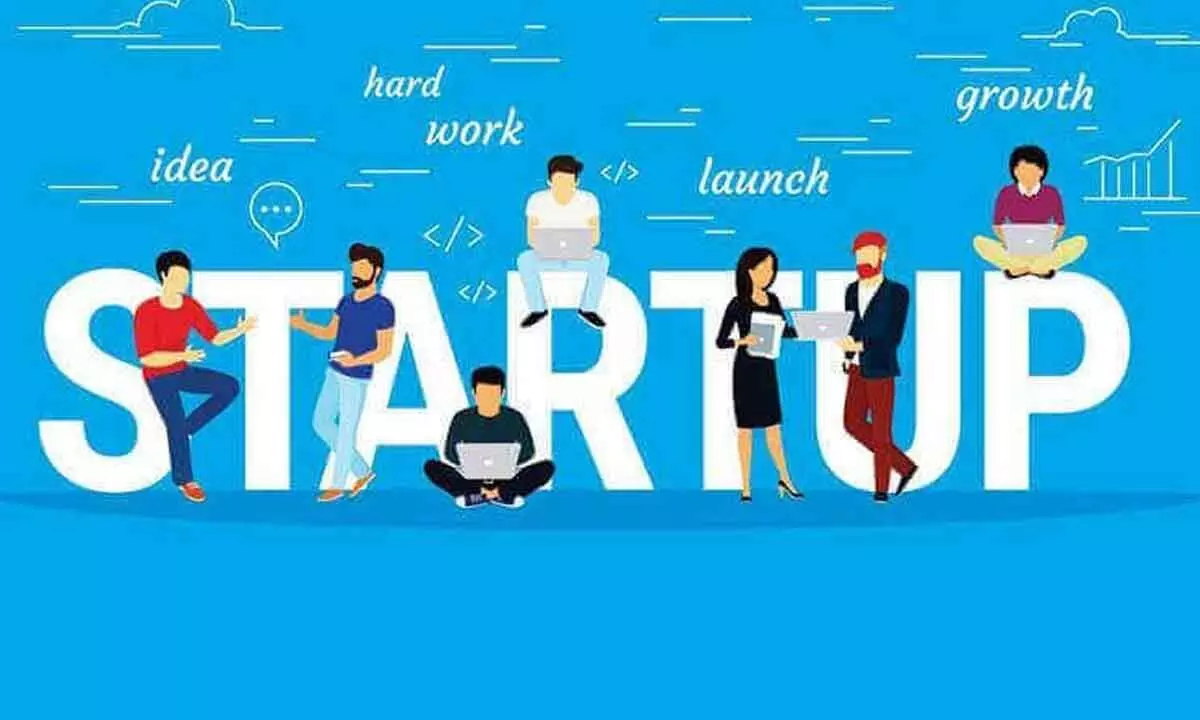AI growth involves high operational costs
Companies across sectors are swearing by the transformative potential of AI-powered solutions
image for illustrative purpose

As generative AI startups navigate the challenging terrain of operational costs and industry consolidation, the path to cost-effective business at scale remains elusive. Nearly 90% of AI startups could face extinction within the coming year
India's artificial intelligence (AI) market is on the cusp of a monumental surge and is projected to reach a staggering $17 billion by 2027, according to a comprehensive joint report by National Association of Software and Service Companies (Nasscom) and Boston Consulting Group (BCG).
The report identifies three key factors driving this meteoric rise – surging enterprise tech spending, a thriving talent pool, and rising investments in AI research and development.
Generative AI startups face a critical decision in their pursuit of technological advancement. They can choose to invest heavily in creating their own foundation model, mirroring the scale of industry giants, or take the more common route of building on existing models, which still demands substantial financial backing.
Companies across diverse sectors are increasingly recognizing the transformative potential of AI-powered solutions. The report indicates a significant uptick in tech spending as businesses seek to optimize operations, enhance efficiency, and gain a competitive edge. This surge in demand for AI-driven technologies is reshaping the landscape of industries ranging from finance and healthcare to manufacturing and logistics.
One of India's standout advantages in the global AI arena is its burgeoning talent pool. The country currently boasts over 4.20 lakh individuals holding AI-related positions, positioning it as a leader in AI skill penetration globally. This wealth of talent is proving to be a catalyst for innovation and a key driver of the country's AI growth. As businesses increasingly prioritize AI integration, India's skilled workforce is poised to play a pivotal role in shaping the future of technology.
The report highlights a substantial influx of both private and public investments into AI research and development. This financial commitment is fostering an environment conducive to innovation, creating fertile ground for startups and established players alike. IT giants, like Wipro, are at the forefront of this trend, are pledging significant investments in AI training and forging partnerships with startups. This influx of capital is expected to propel India to the forefront of global AI innovation.
The survey, conducted across 65 tech companies, underscores the growing commitment to AI adoption. This trend is expected to persist given that the demand for AI talent is projected to grow at an annualised rate of 15% until 2027. These initiatives not only position India as a key player in the global AI landscape but also indicate a long-term commitment to sustaining and accelerating this growth trajectory.
The joint report paints a promising picture, showcasing the immense potential of AI to revolutionize various sectors and propel India's economic growth. With a robust talent pool, rising investments, and increasing adoption, India's AI market is poised to become a global powerhouse, shaping the future of technology in the years to come. As the country embraces this AI revolution, it is set to not only transform its own industries but also make significant contributions to the global AI landscape.
As generative AI startups navigate the challenging terrain of operational costs and industry consolidation, the path to cost-effective business at scale remains elusive. Nearly 90% of AI startups could face extinction within the coming year.
A Bloomberg report highlights the prohibitive costs of AI development infrastructure and the consolidation of value among major tech companies, creating an oligopoly that poses significant hurdles for newcomers. Despite the competitive surge initiated by innovations like ChatGPT, many startups entering the generative AI market are expected to either collapse or be absorbed by established players due to steep operational costs.
Despite the surge in generative AI startups, the Bloomberg report suggests that none has cracked the code on running a cost-effective business at scale, a feat achieved by large tech firms.
The struggle is evident in the substantial financial investment required to either create a foundation model akin to OpenAI's GPT-4 or Google's Gemini, costing hundreds of millions of dollars, or build on an existing model, which still demands tens of millions in investment.
In both scenarios, the primary beneficiaries are major cloud-computing companies like Microsoft, Amazon, and Google, alongside AI chip manufacturer Nvidia.
The consolidation of financial resources within a few major players has far-reaching implications for market dynamics. Nvidia's shares have more than doubled in the past year, propelling the company toward a $2 trillion valuation.
This financial success is indicative of the symbiotic relationship between generative AI startups and the established tech giants, raising questions about the long-term sustainability of a market that funnels significant capital into operational costs rather than innovation.

